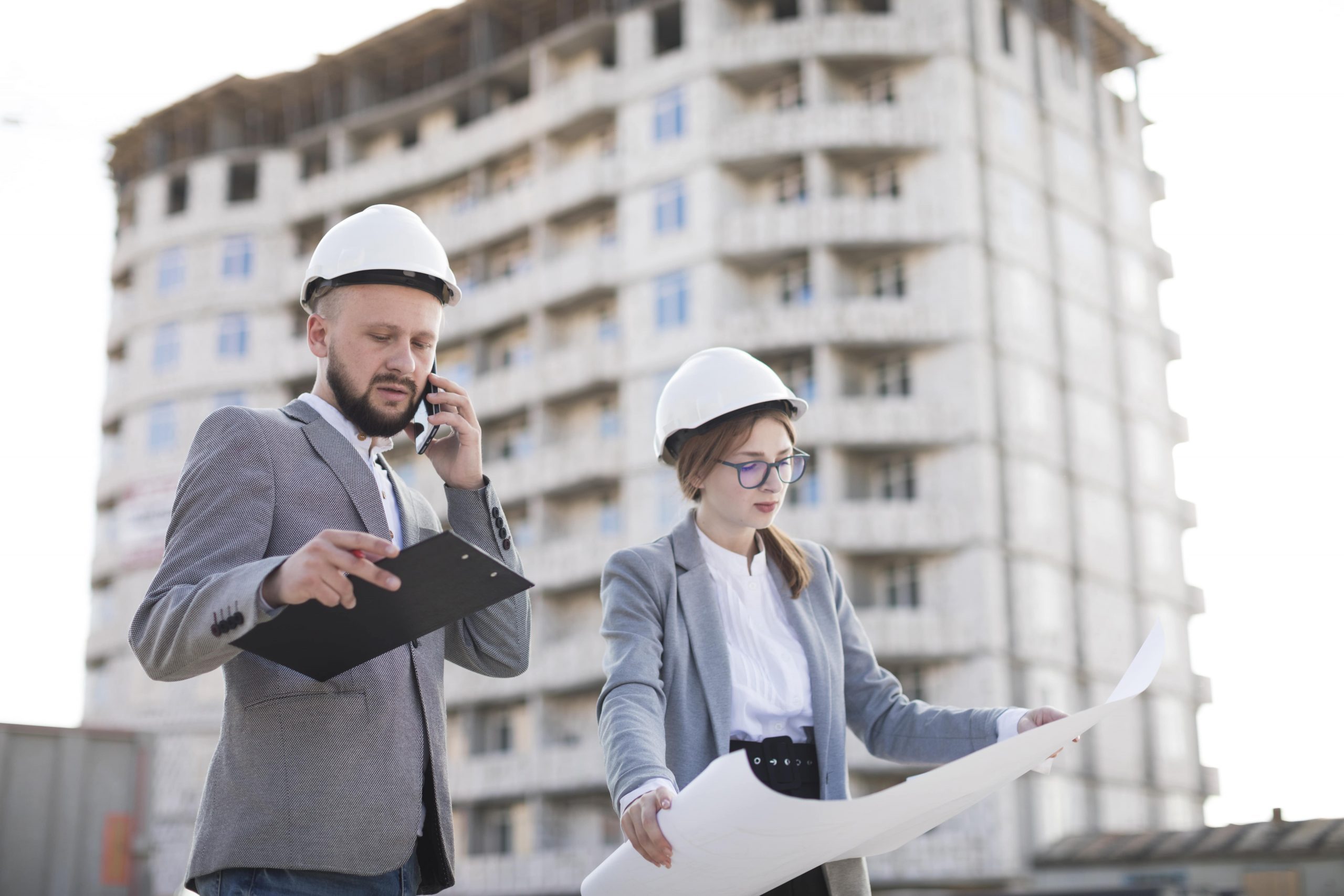How Building Control Companies Ensure Compliance
09 July 2024
6 Mins Read

toc impalement
Ensuring compliance in construction projects is vital for safety and quality. Building control companies play a major role in reviewing plans, conducting site inspections, and verifying that all build aspects meet stringent regulations.
But that’s not all!
It is under their supervision that fire safety, structural integrity, and energy efficiency remain protected within a structure.
Regular inspections and code adherence significantly reduce the risks of accidents and health issues, thus ensuring a secure and healthy environment in every building project.
Is Building Control Important For Construction Projects?

When it comes to ensuring the quality of construction and that it meets all regulatory standards, the job of building control companies comes into play. Their job role also includes conducting detailed plan checks right before the commencement of the construction.
Further, they also review architectural and structural designs to ensure they comply with local building codes!
For instance, they verify that fire safety measures like sprinkler systems and fire escapes are both effectively planned and implemented. This pre-construction oversight helps prevent costly alterations and delays once the building starts.
Role Of Asset Building Control
Assent building control inspectors regularly visit when the construction foes on to monitor progress and ensure adherence to approved plans.
Along with ensuring the right quality of materials used, they also check the structural integrity of the framework and the correct installation of electrical and plumbing systems.
Here, it doesn’t end! They also inspect concrete foundations which ensure that they are poured correctly and meet the required strength specifications. These inspections help catch and rectify any issues early, ensuring the project stays on track and meets safety standards.
Building control companies also play a vital role in verifying energy efficiency and environmental standards. They share an equal responsibility in assessing whether buildings are designed and constructed to optimize energy use. From proper insulation to efficient heating systems, everything falls under their responsibility!
By ensuring compliance with environmental regulations, these companies help reduce the carbon footprint of new buildings and promote sustainable construction practices. For instance, they might verify that insulation materials meet the required thermal performance standards to enhance energy conservation.
It’s Time For Approval!
Do not forget the significance of building control agencies for the final approval as well as the certification process. After the construction is completed, they conduct a thorough final inspection to ensure all aspects of the building meet regulatory standards.
Moving forward, they also accomplish the goal of ensuring operations in all safety systems. It’s not like they can just let go of a structural element in the construction.
After the final inspector gives a green flag, they issue a completion certificate. This ends up confirming that the building is safe for occupancy and compliant with all regulations.
This certification provides peace of mind to builders and occupants alike, ensuring the safety and legality of the construction.
Key Regulations and Standards Monitored by Building Control

Furthermore, control companies also keep a tab on whether the construction projects adhere to various regulations and standards. And the foremost consideration is its structural safety. They check that all load-bearing elements, such as beams and foundations, address the required specifications to prevent collapses.
For example, they take care of the fact the steel reinforcements in concrete structures have correct placements. Hence, it provides the necessary strength and stability.
Fire Safety
The building control also ensures fire safety in a structure. These companies verify that buildings incorporate essential fire prevention measures, including fire-resistant materials, alarm systems, and adequate escape routes.
Effective Smoke Detectors
Another thing to keep in mind is that smoke directors must have a correct and functional installation. Building control agencies ensure the appropriate placement of these detectors.
Compliance with these standards has a higher chance of reducing the risk of fire-related incidents. Thus, it ensures safe evacuation during emergencies.
Energy Efficient Standards
The list goes on and on! It is also the duty of the building controller to keep a tab on the energy efficiency standards. They have to constantly check whether insulation, heating, and ventilation systems are designed and installed to minimize energy consumption.
Going forward, they inspect that both the roofs and walls have have adequate insulation. This will maintain indoor temperature and reduce heating and cooling costs. They also verify that windows and doors have proper seals so that they prevent drafts and energy loss.
Safety and Health Regulations
Building control companies monitor health and safety regulations to keep their occupants safe and sound. Under this comes checking that water supply systems are contamination-free, that electrical installations meet safety standards, and that indoor air quality is maintained.
The job of proper ventilation counts!
When we are talking about maintaining safety and health regulations, they ensure that electrical wiring is correctly installed and grounded. Doing so will not only prevent shocks and fires but also ensure that HVAC systems effectively filter and circulate air.
As a result, the construction can effectively avoid the buildup of harmful pollutants.
The Process of Plan Approval and Site Inspections
Building control companies have a big role to play in both plan approval and site inspections. When construction projects begin, their job is to meticulously review building plans and ensure they abide by the current regulations.
This review includes checking the details of structural integrity, fire safety measures, and energy efficiency. For example, they verify that the proposed materials and design can withstand expected loads and environmental conditions.
Once they approve these plans, the building control companies take charge of conducting regular site inspections and ensuring their adherence.
These inspections encompass everything covered in various stages of construction, from foundation work to the final touches.
Inspectors also maintain the quality of the materials matches those specified in the plans and that all structural elements meet correct installation. They are the first go-to people when someone finds any discrepancies or potential issues to avoid future problems.
During site inspections, building control companies also focus on safety and compliance with fire regulations. They ensure fire exits have clear markings, fire doors have correct installation, and alarm systems are functional.
For instance, they use fire-resistant materials in critical areas and ensure that escape routes are freely open without obstructions. This proactive approach helps prevent fire hazards and ensures buildings are safe for occupants.
Energy efficiency is another critical area monitored during inspections. Building control companies assess whether insulation, ventilation, and heating systems are installed as per the approved plans.
They constantly check that these systems function correctly so that there’s a potential reduction in energy consumption and promote sustainability.
For example, they might inspect that windows and doors have correct and efficient seals to prevent heat loss. Thus ensuring the building meets energy efficiency standards.
This thorough process helps maintain high standards in construction and ensures buildings are safe, efficient, and compliant.
Importance of Compliance for Safety and Quality
Building control companies ensure compliance with regulations to protect safety and quality in construction projects. One critical example is fire safety compliance.
Ensuring buildings have proper fire alarms, sprinkler systems, and fire-resistant materials is crucial for preventing disasters. These measures protect the occupants and reduce potential damage to the property.
Structural integrity is another key aspect where compliance is essential. Adhering to building codes that mandate the use of quality materials and sound construction practices significantly minimizes the risk of structural failures, such as collapses or subsidence.
For instance, correctly reinforced concrete and appropriately laid foundations can prevent catastrophic failures that endanger lives and cause severe financial losses.
Concluding Words
Electrical safety standards contribute as a major focus for building control companies. It goes beyond its usual potential and ensures that electrical systems are installed correctly and maintained.
Thus, it prevents hazards like electrical fires and electrocution.
This includes ensuring wiring is up to code, adequate grounding, and circuits do not have too much load. Regular inspections help identify and rectify potential issues before they become serious problems, safeguarding both the property and its occupants.
Maintaining indoor air quality is another area where compliance with building regulations makes a difference. Proper ventilation and non-toxic materials help prevent health issues such as respiratory problems and allergies.
For example, ensuring that HVAC systems are up to standard and regularly maintained can reduce pollutants and allergens, creating a healthier environment for everyone inside the building.
Read More…


















Comments Are Closed For This Article